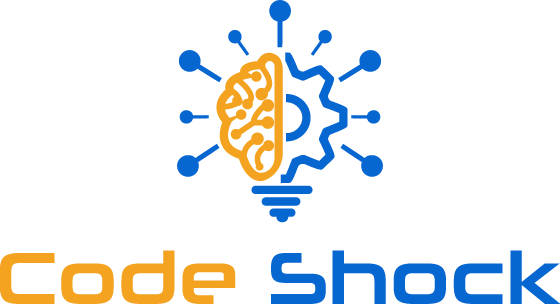Web development projects need good planning and action for success. This article talks about key tips and tools. They help improve coding, teamwork, and quality in web projects.
Using software engineering tools helps developers work better and make fewer mistakes. These tools are great for anyone in web development. They can boost your project to a higher level.

Key Takeaways:
- Software engineering tools are crucial for improving coding efficiency.
- Collaborative workflows enhance teamwork and productivity.
- Quality assurance is essential to ensure reliable and functional web projects.
- Exploring different tools can help optimize web project performance.
- Code documentation tools assist in creating comprehensive and well-organized documentation.
Essential Software Engineering Tools
Having the right tools in your web development toolkit is key. These tools help developers streamline workflows and write better code. They also make team collaboration easier. Let's look at some essential software engineering tools for web developers.
Integrated Development Environments (IDEs)
An Integrated Development Environment, or IDE, is vital for web devs. IDEs offer a complete setup for coding, debugging, and testing. With features like code completion and syntax highlighting, IDEs boost speed and productivity. Popular IDEs include Visual Studio Code, PhpStorm, and Eclipse.
Version Control Systems
Version control systems are crucial for managing code and team collaboration. These tools help track changes, merge code, and manage branches. Git is a key system, supporting platforms like GitHub and Bitbucket.
Debuggers
Debuggers play a key role in solving code problems. They let devs set breakpoints, check variables, and walk through code. This makes finding and fixing bugs easier. Some top debuggers are Chrome DevTools, PyCharm debugger, and Xcode debugger.
Code Editors
Code editors are simple, lightweight tools for code writing and editing. They offer syntax highlighting, code folding, and autocompletion. This helps devs write clean, error-free code. Popular editors include Sublime Text, Atom, and Notepad++.
With these essential tools, web developers can boost their productivity. Whether it's an IDE, version control, debugger, or code editor, these tools streamline your work. They help you produce high-quality web projects.
| Tool | Description |
|---|---|
| Integrated Development Environments (IDEs) | Provide a comprehensive environment for coding, debugging, and testing applications. |
| Version Control Systems | Manage code repositories and facilitate collaboration among developers. |
| Debuggers | Identify and fix issues in code by allowing developers to set breakpoints and inspect variables. |
| Code Editors | Lightweight tools for writing and editing code, with features like syntax highlighting and code folding. |
Improving Performance with Optimization Tools
In the world of web development, creating swift and efficient websites is key. Developers rely on software engineering tools for performance optimization to meet this aim. These tools help them build better websites that function smoothly.
With performance optimization tools, developers can tweak their sites to speed them up. They fit perfectly into the web creation process. This way, developers can find and fix issues that slow down the site.
"Performance optimization tools are vital today. They help developers use resources wisely and speed up websites." - Adam Smith, Senior Web Developer at ABC Company.
Browser performance profiling software is a key tool for developers. It finds and analyzes slow parts of a website. Developers can then make specific changes to boost the site's speed.
Minification and compression software also make a big difference. They shrink code size by taking out extra space and compressing files. This makes websites load faster and less appealing for hackers.
Caching tools are important too. They store common data locally, cutting down on network requests. This speeds up how quickly pages load. Plus, they keep content fresh for visitors.
Database optimization tools sharpen database queries, speeding them up. They give developers a closer look at how queries perform. This lets developers speed up data storage and access.
Comparative Table: Performance Optimization Tools
| Tool | Description | Key Features |
|---|---|---|
| Browser Performance Profilers | Identify and analyze performance bottlenecks in web applications. | - Detailed performance metrics |
| Minification and Compression Tools | Reduce code size and bandwidth usage by removing unnecessary characters and compressing files. | - Code obfuscation - File compression - Gzip compression |
| Caching Tools | Store frequently accessed data locally to reduce network requests and improve load times. | - HTML, CSS, JavaScript caching - Cache invalidation mechanisms |
| Database Optimization Tools | Fine-tune database queries and optimize query execution times. | - Query performance insights - Index optimization - Query profiling |
There are many performance optimization tools for web developers. Using these tools, developers can fully unlock their web projects' potential. This results in faster and smoother websites that keep people happy.

Collaborative Code Development
Working together is key in software engineering. Code collaboration platforms have changed how developers team up. These platforms make teamwork smooth and efficient, letting developers work on code together in real-time. Using software engineering tools helps boost productivity and improve code quality.
Benefits of Code Collaboration Platforms
Code collaboration platforms help developers a lot. They make working together easy and increase teamwork. Let’s discuss some major benefits:
Simultaneous code editing lets many developers work on the same code at the same time. This not only makes development faster but also helps share knowledge and solve problems together.
Version control keeps track of all changes to the code. It allows developers to check and revert changes easily. This helps keep the code solid and makes team work over distances smooth.
Easy communication through these platforms lets developers talk about code, ask questions, and give feedback easily. This gets rid of long email chains and makes collaboration better.
Popular Code Collaboration Platforms
Lots of code collaboration platforms are out there for developers. Let's look at a few:
| Platform | Key Features |
|---|---|
| Github | Version control, code review, issue tracking |
| GitLab | Integrated CI/CD, project management, code snippets |
| Bitbucket | Pull requests, Jira integration, deep integration with Atlassian ecosystem |
These platforms come with many features to help with collaboration and make development easier. Whether you like the open-source community of Github or the full ecosystems of GitLab or Bitbucket, there’s something for every developer.
Using code collaboration platforms helps teams overcome distance, work well together, and make efficient, quality code. These software engineering tools encourage teamwork, make development smoother, and help create outstanding web projects.
Ensuring Code Quality with Testing Tools
Quality assurance is key in software development. It ensures projects are reliable and work well. Developers use testing strategies and tools to find and fix issues early. Here, we talk about different tools that help in keeping quality high.
Automated Testing Tools
Automated testing tools make testing faster and reduce mistakes. They let developers run tests and see detailed results quickly. This increases work efficiency and code quality.
"Automated testing tools are a game-changer. They allow us to run hundreds of test cases with just a few clicks, ensuring that every part of our code is thoroughly tested."- Software Engineer at XYZ Company
Unit Testing Frameworks
Unit testing checks the smallest parts of the code. It's a key part of making good software. Frameworks help by providing tools and libraries for testing, which makes finding and fixing problems easier.
API Testing Tools
APIs help different parts of software talk to each other. API testing tools check these connections are working right. They test requests and responses to prevent errors. This ensures users have a smooth experience.
Performance Testing Tools
A web app's success depends on its performance. Performance testing tools see how well a system works under stress. They simulate real users to find and fix slowdowns. This helps make the app faster and more reliable.
| Testing Tool | Key Features |
|---|---|
| Selenium | Automated web browser testing Cross-browser compatibility testing |
| JUnit | Java unit testing framework Integration with IDEs |
| Postman | API testing and documentation Automation capabilities |
| JMeter | Performance testing Load testing |
Different tools meet different project needs in web development. Choosing the right tools ensures top quality and function in coding. By using these tools well, developers maintain high standards.

Code Documentation and Documentation Tools
Code documentation is key in software development. It helps developers write clear and organized documentation for web projects. Good documentation makes code easier to read, maintain, and work on as a team. The right tools can make documenting smoother, making crucial information easy for developers to find.
The Importance of Code Documentation
Code documentation is more than just listing functions or variables. It tells the story of a project's purpose, function, and structure. This allows new developers to quickly understand and contribute to the project. It helps maintain consistency, reduce errors, and elevate code quality.
Code documentation also acts as a valuable resource for future work and sharing knowledge. It helps teams share ideas and keep projects consistent, even when members change. This documentation connects developers, stakeholders, and users, improving transparency and understanding.
Tools for Streamlined Documentation
Software engineering tools provide many options for documenting code efficiently. Below are some key tools developers might find helpful:
- Javadoc: Perfect for Java code, this tool generates API documentation from comments in the source code. It makes the codebase easier to navigate.
- Swagger: Swagger is ideal for RESTful APIs. Developers can annotate code with OpenAPI specs, creating interactive documentation that's user-friendly and shareable.
- Doxygen: Supporting languages like C++, Java, and Python, Doxygen pulls documentation from code comments. It creates detailed documentation in various formats, including HTML and PDF, with added features like diagrams and dependency graphs.
The choice of tool depends on the project's needs, programming languages used, and team preferences.
Example Table: Comparison of Code Documentation Tools
| Documentation Tool | Supported Languages | Key Features |
|---|---|---|
| Javadoc | Java | Automatic API generation from code comments |
| Swagger | Multiple languages with a focus on RESTful APIs | Interactive documentation, API testing, and client SDK generation |
| Doxygen | Multiple languages including C++, Java, Python | Automatic code extraction, diagrams, cross-references, and customizable output formats |
Code documentation is a smart investment for any software project. With the right tools and commitment to clear, concise documentation, developers can boost code quality, teamwork, and project durability.
Streamlining Deployment and Delivery
Efficient deployment and delivery are key for any web development project. Deploying a website or app involves complex tasks like managing dependencies and automating jobs. Developers use special software engineering tools to make these processes smoother.
Deployment tools reduce errors, cut downtime, and boost efficiency. They automate building, testing, and deploying code. This ensures a smooth process. These tools help manage software components needed for the project's success.
These tools also work with version control systems. This makes it easier to add new features and fix bugs. It supports team collaboration on different parts of the project. This ensures smooth deployment and delivery.
Continuous integration and deployment tools speed up code updates. They automate merging changes, running tests, and deploying updates. By doing this, they keep websites or apps updated and working well.
Key Features of Deployment Tools:
- Automation of deployment tasks
- Dependency management
- Integration with version control systems
- Continuous integration and deployment
- Collaborative workflows
- Monitoring and error tracking
- Rollback and recovery options
Software tools help developers streamline web projects' deployment. This saves time and makes the process efficient from development to production. Using these tools lets teams deliver top-quality code and new features without the hassle of manual deployments.
In conclusion, deployment tools are crucial for web development today. They automate tasks and simplify continuous integration, leading to faster deliveries and better efficiency. The right tools ensure a smooth deployment and happy developers.

Enhancing Security with Software Engineering Tools
Security is a must in web development projects. With rising cyber threats, it's key to keep web projects safe. Thankfully, software engineering tools help improve security and protect data.
Secure coding practices are essential in fighting security risks. By using these methods, developers make web projects safer. This includes checking inputs, encrypting data, and managing who gets access.
Vulnerability scanning tools find weak spots that could let attackers in. They check your code and systems for risks and suggest fixes. Regular scans help catch problems early, making attacks less likely.
It's important to protect sensitive data in web projects. Data encryption tools are key for keeping information safe, whether it's stored or being sent. These tools make it tough for attackers to get or read your data.
secure socket layer (SSL) certificates
Security testing tools help find vulnerabilities in web projects. They test different attack scenarios to spot weak spots. Doing regular security tests helps fix issues and boosts security.
A secure software development life cycle (SDLC) approach is vital. It means including security from start to finish in development. This way, developers can tackle vulnerabilities early and avoid breaches.
Security-focused code review tools help find code issues that could lead to breaches. They look for common problems like code injection or weak authentication. Regular code reviews with these tools catch security flaws fast.
Security monitoring tools let developers see their project's security status in real time. They watch for odd activities, like strange network traffic or break-in attempts. Quick detection and action can limit damage from security incidents.
Examples of Software Engineering Tools for Enhancing Web Project Security
| Tool | Description |
|---|---|
| Static Application Security Testing (SAST) tools | Scans the source code for security vulnerabilities, identifies potential weaknesses, and provides recommendations for improvement. |
| Dynamic Application Security Testing (DAST) tools | Simulates real-world attacks and analyzes the application's response to identify vulnerabilities and potential risks. |
| Web Application Firewalls (WAFs) | Act as a barrier between the application server and external traffic, filtering out malicious requests and protecting against common web attacks. |
| Password Management Tools | Securely store and manage passwords, ensuring strong password policies and reducing the risk of password-related breaches. |
Software engineering tools can make web projects much safer. They offer everything from secure coding to encryption. Using these tools throughout development is crucial for data protection and project success.
Conclusion
In today's fast-paced web development world, picking the right software engineering tools is key. We've looked at tools and methods that boost coding speed, help teams work together, guarantee high quality, enhance performance, and make web projects more secure.
Important tools like IDEs and version control systems help streamline development. Code collaboration platforms and testing tools are also essential. They help deliver sturdy, dependable web projects.
As you start your web development path, try out these powerful software engineering tools. They can boost how much you get done, improve your code, and let you make standout digital experiences for your users.
FAQ
What are software engineering tools?
Software engineering tools help software developers with their work. This includes IDEs, debuggers, and code editors. They make coding and development easier.
Why are software engineering tools important for web development projects?
These tools make web development better by boosting coding efficiency and teamwork. They also ensure the project's quality. This leads to successful projects with fewer errors.
What are some examples of essential software engineering tools?
Essential tools for web development include IDEs like Visual Studio Code and debuggers like Chrome DevTools. Git helps with version control. These tools are widely used by developers.
How can performance optimization tools improve web projects?
Performance tools enhance web project speed and efficiency. They fix issues, optimize code, and cut down on load times. This boosts the experience for users.
What are code collaboration platforms?
Code collaboration platforms help developers work together on code. They support teamwork with version control and editing features. This makes working on the same project smoother.
Why is quality assurance important in software development?
Quality assurance makes sure web projects work well and are reliable. Testing tools find and fix flaws. This helps deliver top-quality software.
How can code documentation tools assist in web development projects?
Documentation tools help create clear guides for web projects. They help others understand and work with the code better. This makes maintaining the project easier.
What are deployment tools and why are they important?
Deployment tools make delivering web projects easier by automating the process. They manage the many steps and tasks. This leads to smoother deployment and updates.
How can software engineering tools enhance the security of web projects?
These tools boost web project security by promoting safe coding. They find weaknesses and help protect data. This makes web projects more secure against threats.






